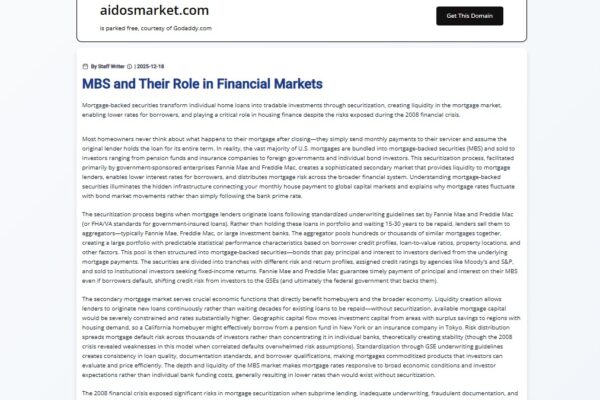VoltGo.cc Review -Regulatory Alerts and Scam Signals
Introduction — shiny branding, shaky foundations
VoltGo.cc presents itself as a modern tech/crypto project with ambitious blockchain and token plans. Its design, whitepaper-style copy and product imagery aim to convey professionalism and innovation. That surface polish — combined with promises of strong returns and easy participation — is exactly the way many contemporary scams lure attention.
Under that veneer, independent checks show multiple worrying signals: absence of reliable regulation, anonymous or obfuscated ownership claims, inconsistent technical evidence for on-chain activity, and recent listings on watchdog/complaint sites. Taken together, these factors make VoltGo.cc a very risky proposition for anyone considering financial participation.
What VoltGo.cc claims (the marketing)
VoltGo’s public messaging mixes two common themes:
-
a tech narrative — IoT / smart-charging devices + blockchain token economics;
-
a finance narrative — token utility, staking, yield and investor returns.
That combination is persuasive: it promises a tangible ecosystem (charging hardware) tied to a token economy (crypto returns). But presentation alone does not prove operations, distribution, or regulatory compliance — and VoltGo.cc offers little verifiable backing for either the hardware rollout or trustworthy token on-chain governance.
Core red flags (quick overview)
-
No credible regulator oversight — public watchdogs have flagged the brand or related trading platforms as not registered or unauthorised in multiple jurisdictions.
-
Anonymous/obscured ownership — WHOIS/registrar protection and unclear corporate addresses are present, reducing accountability.
-
Multiple independent scam-review writeups — several fraud-tracking sites have published warnings or highly critical reviews in recent weeks.
-
Inconsistent trust signals — automated trust analyzers show mixed results (some score middling, others warn strongly), which often means the project is new and unproven — a common trait of hit-and-run scams.
-
Possible brand/network ties under regulatory scrutiny — entities or groups associated with the VoltGo name have appeared in recent regulatory caution notices. That increases the chance the operation is part of a problematic network.
How these scams usually work (pattern VoltGo appears to follow)
Even without access to private evidence, VoltGo’s public footprint matches a common scam blueprint:
-
Lure: polished website, pro-looking whitepaper and tokenomics diagrams to build credibility;
-
Hook: early testimonials / “proof” of activity (often screenshots only) and small, initial on-ramps to bring in first funds;
-
Upsell: promises of staking, early access discounts or “private sale” allocations that push users to buy more tokens or deposit funds;
-
Lockdown: withdrawal friction appears, additional verification or “unlock fees” are requested, and communication becomes intermittent;
-
Rebrand/exit: domain/name changes or disappearances once attention or complaints mount.
Multiple VoltGo writeups note precisely these traits — early attractive messaging followed by late regulatory mentions and community concern.
Evidence and independent checks
Below are the most load-bearing findings available publicly (each point below is backed by independent reporting or watchdog data):
-
Regulatory alerts and investor cautions: Several jurisdictions and aggregation services have flagged entities operating under the VoltGo / Nexus-style names as unauthorised and currently under review — a serious sign when money is being solicited. These notices explicitly list voltgo.cc among domains of concern.
-
Multiple scam-review sites reporting the same concerns: FraudTracers, TracerScam, Reliable-Reviewers and other fraud-monitoring blogs independently published warnings that VoltGo.cc lacks reliable licensing, shows anonymous registration, and has reports of suspicious activity. When multiple independent monitors converge on the same conclusions within weeks of each other, that raises the probability the red flags are real.
-
Mixed trust scores from automated checkers: Scamadviser gives the domain a middling reliability score but notes the site is young and partially anonymised — an indication the project is new with little verifiable track record and therefore carries extra risk. Automated tools are not the final word, but they help triangulate credibility.
-
Anecdotal and forum chatter: crypto and consumer forums contain critical threads and user complaints tying VoltGo-branded services to requests for funds and opaque business practices. Public forum threads echo the same themes: easy in, hard / impossible out. (Forum posts are anecdotal — they must be weighed carefully — but when dozens of them reflect similar stories it’s meaningful.)
-
Press listings that amplify but don’t verify: some outlets and asset aggregators list VoltGo token pages (price widgets, token descriptions). These listings are not evidence of legitimacy; they often reflect token creation or marketing activity rather than operational proof. Independent verification (audits, regulator registration, verifiable on-chain contracts) remains absent or unclear.
Technical and on-chain transparency — what’s missing
Genuine token projects provide:
-
verified smart-contract addresses with audit reports,
-
clear marketplace listings with volume and wallet provenance,
-
public audits from reputable security firms, and
-
verifiable corporate filings tying the token to an accountable entity.
VoltGo’s publicly visible materials lack robust, independently verifiable on-chain evidence (audited contracts, published wallet activity tied to operations, or independent market liquidity of the token). The absence of those elements makes any token-economics claim highly speculative.
Who might be targeted and why this matters
VoltGo’s marketing is written to attract two groups:
-
Retail crypto investors chasing new tokens and staking yields;
-
Retail investors drawn to “tech + token” combos who assume a hardware product (smart chargers) equals real revenue.
Those audiences are particularly vulnerable to projects that mix tangible hardware narratives with token promises — the hardware story creates the illusion of a physical revenue stream backing token value, even when none exists or hasn’t been proven.
Because VoltGo’s public claims are not backed by transparent audits or verifiable sales/partnerships, people who commit funds today risk being left with illiquid tokens or no recourse if the operator stops communicating.
Common rebuttals you may hear — and how to read them
-
“They have a whitepaper and a roadmap.” — Whitepapers are marketing documents, not proof. Roadmaps are easy to publish; governance, audits, and verifiable business operations are proof. VoltGo’s roadmap presence does not replace independent verification.
-
“Some press outlets list the token.” — Token pages and price widgets can appear automatically in data aggregators; listing ≠ endorsement or verification. Real validation comes from audited contracts, reputable exchange listings, and regulator transparency.
-
“Early adopters had small withdrawals succeed.” — Some scams allow small withdrawals early to build trust, then block larger exits later. That pattern is widely reported in dozens of fraud cases and appears in community threads about VoltGo-related services. Treat small early payouts as an unreliable signal.
Final assessment — prudent conclusion
VoltGo.cc shows multiple independent risk indicators: regulatory cautions, anonymous registration, consistent reporting by fraud-tracking sites, and insufficient on-chain transparency. Those combine into a high-risk profile that is consistent with many modern token/hardware hybrid scams.
Because of the strength and consistency of those indicators, the responsible editorial stance is to treat VoltGo.cc as very high risk and likely fraudulent until and unless the operators produce clear, independently verifiable evidence: regulator registration, audited smart contracts, verifiable revenue from hardware sales, and transparent corporate disclosure.
Report VoltGo.cc Scam and Recover Your Funds
If you have lost money to VoltGo.cc, it’s important to take action immediately. Report the scam to Jayen-consulting.com, a trusted platform that assists victims in recovering their stolen funds. The sooner you act, the better your chances of reclaiming your money and holding these fraudsters accountable.
Scam brokers like VoltGo.cc continue to target unsuspecting investors. Stay informed, avoid unregulated platforms, and report scams to protect yourself and others from financial fraud.
Stay smart. Stay safe






